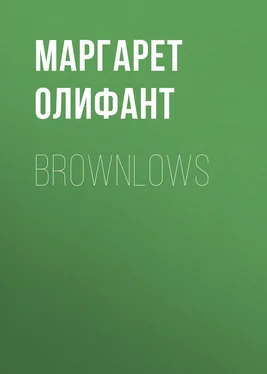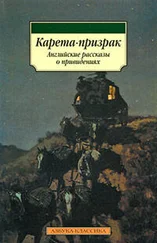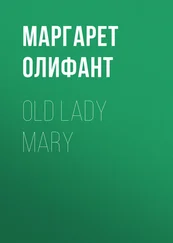Маргарет Олифант - Brownlows
Здесь есть возможность читать онлайн «Маргарет Олифант - Brownlows» — ознакомительный отрывок электронной книги совершенно бесплатно, а после прочтения отрывка купить полную версию. В некоторых случаях можно слушать аудио, скачать через торрент в формате fb2 и присутствует краткое содержание. Жанр: foreign_prose, literature_19, foreign_antique, на английском языке. Описание произведения, (предисловие) а так же отзывы посетителей доступны на портале библиотеки ЛибКат.
- Название:Brownlows
- Автор:
- Жанр:
- Год:неизвестен
- ISBN:нет данных
- Рейтинг книги:5 / 5. Голосов: 1
-
Избранное:Добавить в избранное
- Отзывы:
-
Ваша оценка:
- 100
- 1
- 2
- 3
- 4
- 5
Brownlows: краткое содержание, описание и аннотация
Предлагаем к чтению аннотацию, описание, краткое содержание или предисловие (зависит от того, что написал сам автор книги «Brownlows»). Если вы не нашли необходимую информацию о книге — напишите в комментариях, мы постараемся отыскать её.
Brownlows — читать онлайн ознакомительный отрывок
Ниже представлен текст книги, разбитый по страницам. Система сохранения места последней прочитанной страницы, позволяет с удобством читать онлайн бесплатно книгу «Brownlows», без необходимости каждый раз заново искать на чём Вы остановились. Поставьте закладку, и сможете в любой момент перейти на страницу, на которой закончили чтение.
Интервал:
Закладка:
“I am glad to hear it,” said Mr. Brownlow: and yet he could not but ask himself whether his young visitor laid an emphasis upon this situation. What was this situation more than another? “But the salary is not very large, you know—do you mean to take your mother and her family on your shoulders with sixty pounds a-year!”
“It is my family,” said the young man, growing red. “I have no interest separate from theirs.” Then he paused for a moment, feeling affronted; but he could not bear malice. Next minute he relapsed into the frank and confidential tone that was natural to him. “There are only five of us after all,” he said—“five altogether, and the little sisters don’t cost much; and we have a little money—I think we shall do very well.”
“I hope so,” said Mr. Brownlow; and somehow, notwithstanding that he intended in his heart to do this young fellow a deadly injury, a certain affectionate interest in the lad sprung up within him. He was so honest and open, and had such an innocent confidence in the interest of others. None of his ordinary clerks were thus garrulous to Mr. Brownlow. It never would have occurred to them to confide in the “guv’nor.” He knew them as they came and went, and had a certain knowledge of their belongings—which it was that would have old Robinson’s money, and which that had given his father so much uneasiness; but that was very different from a young fellow that would look into your face and make a confidant of you as to his way of spending his sixty pounds a-year. John Brownlow had possessed a heart ever since he was aware of his own individuality. It was that that made him raise his eyes always, years and years ago, when Bessie Fennell went past his windows. Perhaps it would have been just as well had he not been thus moved; and yet sometimes, when he was all by himself and looked up suddenly and saw any passing figure, the remembrance of those moments when Bessie passed would be as clear upon him as if he were young again. Influenced by this same organ, which had no particular business in the breast of a man of his profession at his years, Mr. Brownlow looked up with eyes that were almost tender upon the young man whom he had just taken into his employment—notwithstanding that, to tell the truth, he meant badly by him, and in one particular at least was far from intending to be his friend.
“I hope so,” he said; “and if you are steady and suit us, there may be means found of increasing a little. I don’t pledge myself to any thing, you know; but we shall see how you get on; and if you have any papers or any thing that may give a clue to your father’s family,” he continued, as he took up his pen, “bring them to me some day and I’ll look over them. That’s all in the way of business to us. We might satisfy your mother after all, and perhaps be of some use to you.”
This he said with an almost paternal smile, dismissing his new clerk, who went away in an enthusiasm of gratitude and satisfaction. It is so pleasant to be very kindly used, especially to young people who know no better. It throws a glow of comfort through the internal consciousness. It is so very, very good of your patron, and, in a smaller way, it is good of you too, who are patronized. You are understood, you are appreciated, you are liked. This was the feeling young Powys had. To think that Mr. Brownlow would have been as good to any body would not have been half so satisfactory, and he went off with ringing hasty steps, which in themselves were beating a measure of exhilaration, to tell his mother, who, though ready on the spot to worship Mr. Brownlow, would naturally set this wonderful success down to the score of her boy’s excellencies. As for the lawyer himself, he took his pen in his hand and wrote a few words of the letter which lay unfinished before him while the young man was going out, as if anxious to make up for the time lost in this interview; but as soon as the door was closed John Brownlow laid down his pen and leaned back in his chair. What was it he had done?—taken in a viper to his bosom that would sting him? or received a generous, open, confiding youth, in order to blind and hoodwink and rob him? These were strong—nay, rude and harsh words, and he did not say them even to himself; but a kind of shadow of them rolled through his mind, and gave him a momentary panic. Was this what he was about to do? With a pretense of kindness, even generosity, to take this open-hearted young fellow into his employment, in order to keep him in the dark, and prevent him from finding out that the fortune was his upon which Brownlows and all its grandeur was founded? Was this what he was doing? It seemed to John Brownlow for the moment as if the air of the room was suffocating, or rather as if there was no air at all to breathe, and he plucked at his cravat in the horror of the sensation. But then he came to himself. Perhaps, on the other hand, just as likely, he was taking into his house a secret enemy, who, once posted there, would search and find out every thing. Quite likely, very likely; for what did he mean by the emphasis with which he said this situation, and all that about his father, which was throwing dust into Mr. Brownlow’s cautious eyes? Perhaps his mind was a little biased by his profession—perhaps he was moved by something of the curious legal uncertainty which teaches a man to plead “never indebted” in the same breath with “already paid;” for amid the hurry and tumult of these thoughts came another which was of a more comforting tendency. After all, he had no evidence that the boy was that woman’s son. No evidence whatever—not a shadow. And it was not his duty to go out and hunt for her or her son over all the world. Nobody could expect it of him. He had done it once, but to do it over again would be simply absurd. Let them come and make their claim.
Thus the matter was decided, and there could be no doubt that it was with a thrill of very strange and mingled interest that Mr. Brownlow watched young Powys enter upon his duties. He had thought this would be a trouble to him—a constant shadow upon him—a kind of silent threat of misery to come; but the fact was that it did not turn out so. The young fellow was so frank and honest, so far at least as physiognomy went—his very step was so cheerful and active, and rang so lightly on the stones—he was so ready to do any thing, so quick and cordial and workman-like about his work—came in with such a bright face, spoke with such a pleasant respectful confidence, as knowing that some special link existed between his employer and himself; Mr. Brownlow grew absolutely attached to the new clerk, for whom he had so little use, to whom he was so kind and fatherly, and against whom—good heavens! was it possible? he was harboring such dark designs.
As for young Jack, when he came back to the office after a few days on the ice, there being nothing very important in the way of business going on just then, the sight of this new figure took him very much by surprise. He was not very friendly with his father’s clerks on the whole—perhaps because they were too near himself to be looked upon with charitable eyes; too near, and yet as far off, he thought to himself, as if he had been a duke. Not that Jack had those attributes which distinguished the great family of snobs. When he was among educated men he was as unassuming as it is in the nature of a young man to be, and never dreamed of asking what their pedigree was, or what their balance at their banker’s. But the clerks were different—they were natural enemies—fellows that might set themselves up for being as good as he, and yet were not as good as he, however you chose to look at the question. In short, they were cads. This was the all-expressive word in which Jack developed his sentiments. Any addition to the cads was irksome to him; and then he, the young prince, knew nothing about it, which was more irksome still.
Читать дальшеИнтервал:
Закладка:
Похожие книги на «Brownlows»
Представляем Вашему вниманию похожие книги на «Brownlows» списком для выбора. Мы отобрали схожую по названию и смыслу литературу в надежде предоставить читателям больше вариантов отыскать новые, интересные, ещё непрочитанные произведения.
Обсуждение, отзывы о книге «Brownlows» и просто собственные мнения читателей. Оставьте ваши комментарии, напишите, что Вы думаете о произведении, его смысле или главных героях. Укажите что конкретно понравилось, а что нет, и почему Вы так считаете.












